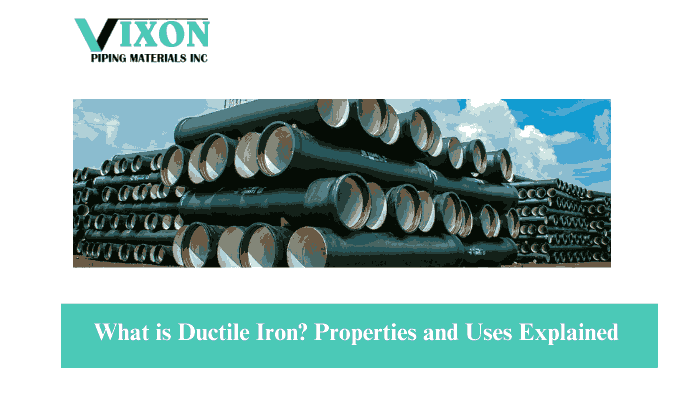Ductile Iron is a special type of cast iron known for its strength and flexibility. Unlike regular cast iron, which can be brittle and break easily, Ductile Iron is treated to make it much stronger and more versatile. This makes it useful in many industries, from construction to car manufacturing.
Properties of Ductile Iron
1. High Tensile Strength:
One of the key advantages of Ductile Iron is its impressive tensile strength. It can withstand heavy loads and extreme conditions, making it a preferred material for industries like automotive, construction, and manufacturing.
2. Flexibility and Ductility:
Unlike other types of cast iron, Ductile Iron does not crack easily under stress. but Ductile Iron is flexible. Its molecular structure, with graphite nodules special structure, allows it to bend or stretch without cracking, making it ideal for parts that need both strength and flexibility.
3. Resistant to Rust:
Ductile Iron doesn’t rust easily, even in wet or harsh environments. This makes it a popular choice for pipes, fittings, and other infrastructure components exposed to moisture or chemicals.
4. Long-Lasting:
Because it’s tough and doesn’t wear out quickly, Ductile Iron lasts longer than other materials. making it suitable for high-friction environments. Components made from this material last longer, reducing the need for frequent replacements.
5. Impact Resistance:
Another advantage of Ductile Iron is that it can handle impacts well. This allows it to absorb shock and stress without compromising its integrity, which is why it’s used in parts that need to absorb shock, like car suspension systems.

Uses of Ductile Iron
1. Pipe and Fitting Manufacturing:
One of the most common uses of Ductile Iron is in producing water and sewage pipes. The material’s flexibility and resistance to corrosion make it ideal for pipelines, ensuring long-lasting and reliable performance.
2. Automotive Components:
Ductile Iron is frequently used in the automotive industry to produce crankshafts, gears, and other engine components. Its strength and durability allow vehicles to operate smoothly while withstanding heavy loads and vibrations.
3. Construction and Infrastructure:
Ductile Iron is also used in construction for its high strength and toughness. It is used in structural components, manhole covers, and frames, as well as for machinery parts that are exposed to heavy wear.
4. Valves and Pump Housing:
Because of its superior mechanical properties, Ductile Iron is also used to produce valves and pump housings. These components must withstand extreme pressures and temperatures, making Ductile Iron the ideal material.
5. Wind Turbine
In the renewable energy sector, particularly in wind turbines, Ductile Iron is used to manufacture various parts that require high strength, such as rotors and support structures. Its ability to handle stress and exposure to the elements makes it an excellent choice for these applications.
Conclusion
Ductile Iron is a versatile and durable material that combines strength, flexibility, and corrosion resistance. Its unique properties make it ideal for various industries, from automotive to construction and more. Whether in the form of pipes, automotive components, or industrial machinery parts, Ductile Iron is essential for applications that demand long-lasting and high-performance materials.

